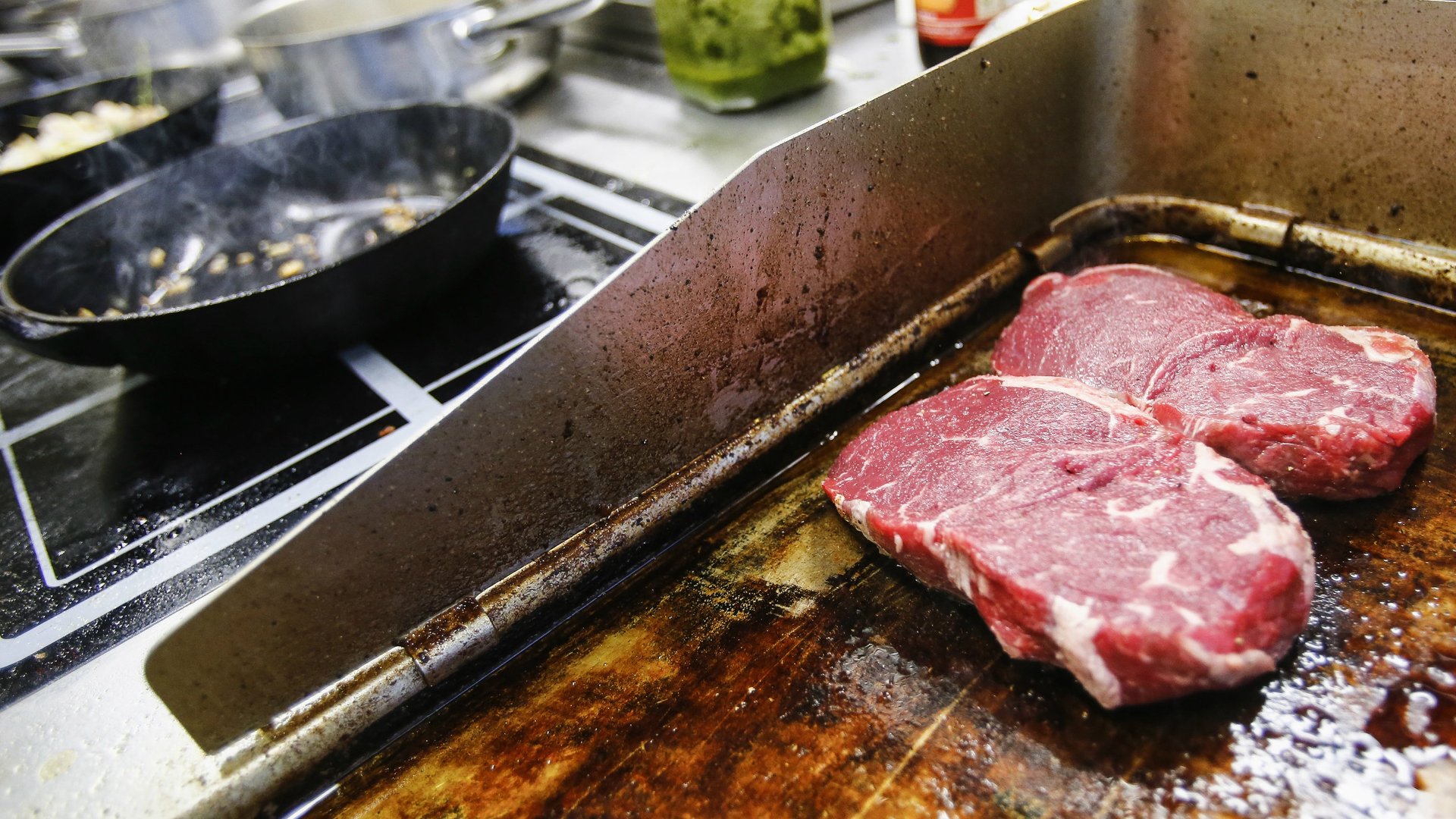How February 9 became a meat-eating extravaganza in Japan
Japan’s national ‘Meat Day,’ an annual meat-eating extravaganza driven by the food industry, has its roots in a pair of rhyming words.


Japan’s national ‘Meat Day,’ an annual meat-eating extravaganza driven by the food industry, has its roots in a pair of rhyming words.
The ninth day of the second month, and the word for meat, are pronounced similarly in Japanese (niku for meat and ni-kyuu for the numbers), making Feb. 9 the perfect day for a carnivorous celebration. While it’s unclear if the holiday’s origins began with meat-lovers or meat producers, its popularity has been driven by Japanese supermarkets and restaurants, which have taken to the idea, offering discounts and deals to celebrate the day. This year, Yoyogi Bar in Tokyo is luring customers with an all-you-can-eat meat event (it had 70 reservations by Feb. 6); chain restaurant Gyu-Kaku has already started advertising discounts; and supermarket chains are floating half-price deals, according to Global Meat News.
Other variations of “two” and “nine” have also been used as an excuse to celebrate meat eating, including the twenty-ninth day of some months.
National ‘Meat Day’ in Japan isn’t just an eclectic excuse to eat meat. It’s a reflection of the country’s growing carnivorous appetite. Meat makes up the lion’s share of Japan’s agricultural imports—about 20% in recent years. The island nation of 127 million is the world’s largest importer of meat, much of it coming from the US, according to the US Department of Agriculture. Indeed, trade data show that in the last decade, imports of pork and beef to Japan from the US increased by 20% and a staggering 1,400%, respectively.
The Japanese are so hungry for meat imports (national ‘Meat Day’ is celebrated even amongst Japanese expats, with a Facebook group dedicated to it) that US and Australian meat producers have been locked in a tug-of-war over that market for years. US meat producers have become increasingly jittery since US president Donald Trump issued a directive essentially pulling the country out a multi-lateral trade agreement—the Trans-Pacific Partnership—that would have given American agricultural groups greater access to Asian markets, including Japan. Since then, Australia has made moves to capitalize on the vacuum left by the US.
That tension is less apparent in everyday life in Japan. Why fret about international trade when you can walk into a KFC and order a bucket of chicken? Recent earnings reported by the fast-food chain show an 8% sales growth in the Japanese market during the 2016 Christmas holiday season (Dec. 23-25), year over year.